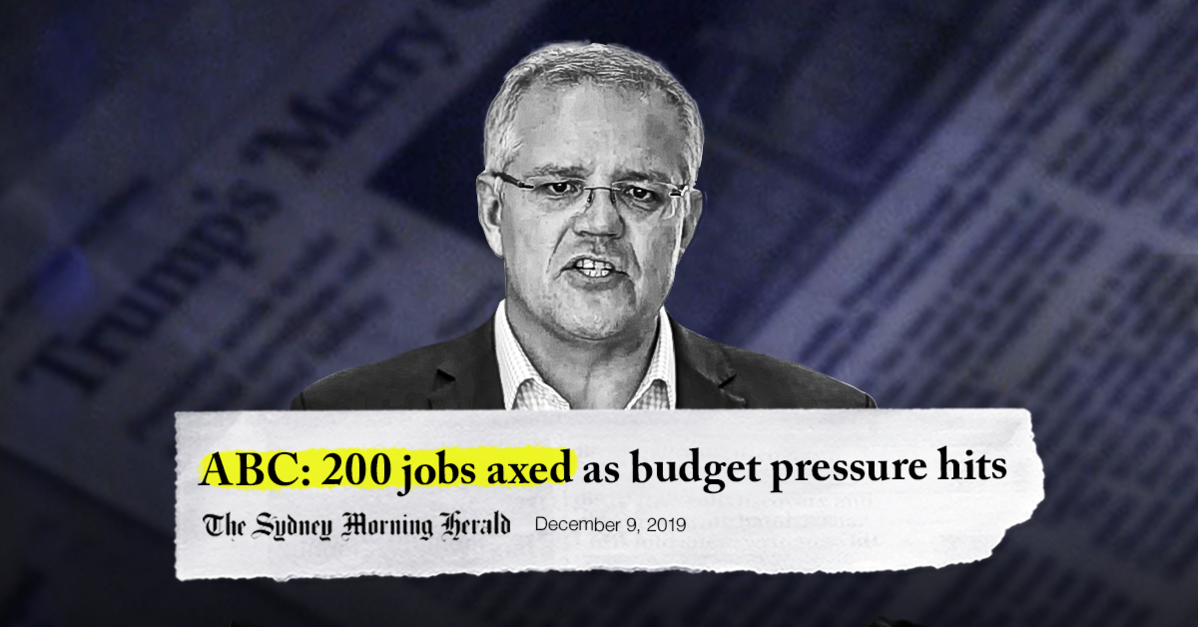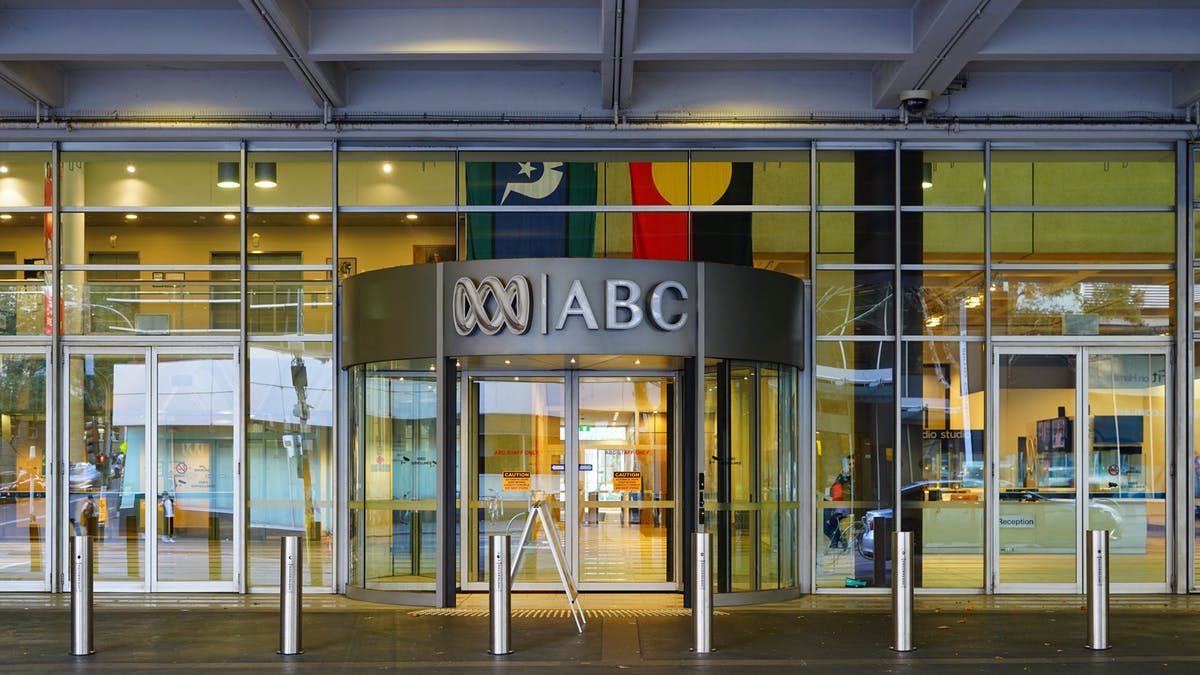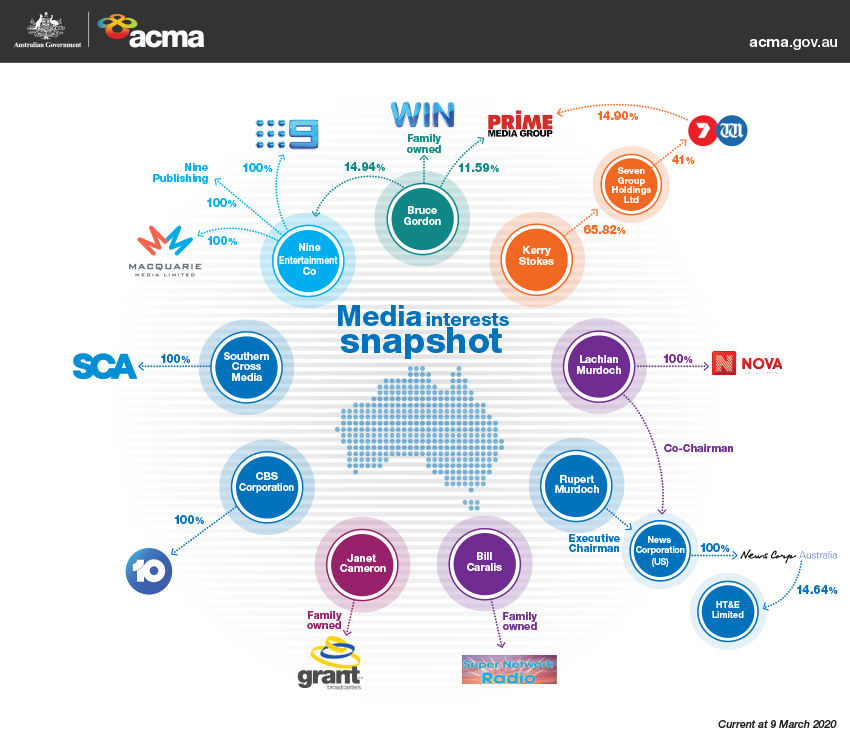The ABC is the latest casualty in a string of media redundancies that have rocked the nation over the past few weeks. Cuts to journalism are not new, but in an age where media concentration is at an all time high, and fake news is spread like wildfire online, it is certainly a dangerous development.

What’s happening over at the ABC
The ABC has been forced to ask staff to volunteer for redundancies on Tuesday as a result of the new Federal Governments $84 million dollar budget cuts. The decision comes following news that Australia is about to enter it’s first recession in 29 years.
Considering that the ABC and the coalition have had a historically strained relationship, it is not surprising that our public broadcasting service is one of the first government funded industries to take a hit. In fact, the ABC has lost $783 million dollars in funding since the coalition came to power in 2014.

despite our best efforts some of our services will be affected and, regrettably, there will be redundancies,” managing director David Anderson confirmed.
It is expected that the ABC will have to cut a whopping 250 jobs across their news, entertainment and regional divisions. Which will especially disadvantage rural Australians, who are under-represented by commercial news conglomerates.
Meanwhile, Scott Morrison’s is one of the highest worlds paid political leaders, with a staggering annual salary of $549,250 as of 2019. When asked if he would consider a pay cut in solidarity with struggling Australians, Morrison refused. Insisting he could continue to “do a good job” instead.
During the bushfires and Covid-19 @abc730 @abcnews has shown how important it is to the country, especially rural Australia, and now because of years of under-funding by the government it is facing up to 200 job losses. Shame! #OurABC #Independentnews
— Jeremy M Clarke (@JeremyOzChina) June 9, 2020
Who else has gone bust?
While the loss of funding to the ABC will hurt the media sector, it is not the only victim in the exodus on Australian media. Not by a long shot.

Last month, Buzzfeed announced that it will be ceasing operations in Australia, leaving a void for powerful and effective investigative journalism now needing to be filled.
Since launching in 2014, the company has been instrumental in uncovering a number of culturally significant stories, and has been instrumental in shaping attitudes around same-sex marriage and abortion. Buzzfeed Australia has excelled in their role to act as a watchdog to the higher powers, and has worked tirelessly to ensure that these powers remain transparent with the public sphere.
Around the time that Buzzfeed announced their intention to withdraw from Australia, 10 Daily also made the difficult decision to shut its doors. After almost two years since it’s inception, the online publication folded before it could reach it’s anniversary.
Sad news – @10Daily is being closed from Friday
There will be a lot of people left without jobs – news, lifestyle and entertainment journalists; editors; video editors; social staff. They’re all guns
If you need people, please DM me and I can recommend you a few legends to hire
— Josh Butler (@JoshButler) May 18, 2020
And while these redundancies suck, they are ultimately a small blow compared to the restructuring at Newscorp; which has left some regional Australians without any form of print news. When asked just how many job losses this restructuring will lead to, the answer was unclear.
“We’re not talking to numbers, we’re talking about people and we’re having those conversations today and tomorrow, so I’m not going to prejudice those conversations, we’re going to talk to them individually,” News Corp Australia’s executive chairman Michael Miller said.
How will this affect us going forward?
Currently, Australia’s level of media concentration is among the highest in the world. In 2016, there was a reform bill introduced which sought to further dismantle our media concentration laws.
As it stands, media corporations are not legally allowed to broadcast to more than 75% of Australians. Essentially, what this means is that news conglomerates are only able to own two out of three media platforms: whether it be newspapers, television or radio. This is to ensure that Australians are hearing a number of different perspectives on important issues.

The reform bill would see these restrictions abolished. While the bill has already passed through the senate, it seems to have stalled in the house of representatives. However, if it were to go through, it would mean that Australians potentially only consume news from one media source, with one agenda. Yikes.
Now that our public broadcaster in the ABC is losing its voice due to the severe budget cuts, and independent powerhouses like Buzzfeed are shutting shop, it seems like we are already heading to lack a serious of diversity in our news.
Let’s be clear. @LiberalAus defunding @ABCaustralia is about minimising an objective voice in the mess of Australian political media in this country. It has nothing to do with saving money. We should all be angry. Every day this party erodes our democracy. #ourABC #auspol
— ?????? ????? (@steph_brown_aus) June 9, 2020
No doubt, it is rural Australia taking the biggest hit. But we are all in danger of living in a state where news media no longer works for the people, but rather themselves. So it is important in these times that we support the ABC, and independent news organisations. They are the gears to the wheels of democratic functionality.
So read up people! You might just save our free press.
Subscribe to FIB’s Weekly Alchemy Report for your weekly dose of music, fashion and pop culture news!







